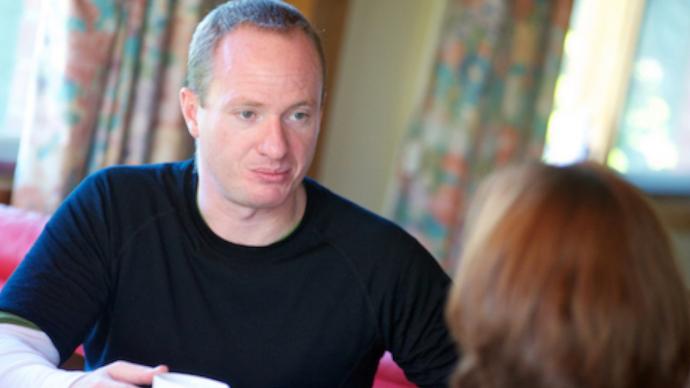Suicide awareness FAQ
The former Suicide Awareness Quiz now directs here.
There are a lot of myths and inaccurate information about suicide. We provide answers to some common questions to help inform the community.
Is the rate of suicide higher in the Australian Defence Force than in the general population?
No. Between 2001 and 2018 there were 465 suicides in serving, reserve & ex-serving ADF personnel who have served since 2001. Between 2002–2018, the age-adjusted rate of suicide was:
- 50% lower for serving and reserve men than the Australian male population
More information on the prevalence of veteran suicide is available from the Australian Institute of Health and Welfare (AIHW) report.
Is the rate of suicide higher in the ex-service community?
Yes. Suicide within the ex-service community is more prevalent than the general population. Between 2001 and 2018, there were 465 suicides in serving, reserve & ex-serving ADF personnel who have served since 2001. Between 2002–2018 the age-adjusted rate of suicide was:
- 21% higher in ex-serving men than the Australian male population
- 2.27 times higher for ex-serving women than the Australian female population.
More information on the prevalence of veteran suicide is available from the Australian Institute of Health and Welfare (AIHW) report.
Do more men than women die by suicide in Australia?
Yes. Suicide is about three times more common in men than women. In Australia in 2019, 2,502 males and 816 females completed suicide. Australian Bureau of Statistics, Causes of Death, Australia 2019
Are there are known risk factors for suicide?
Yes. To understand the risk factors for suicide in the ex-service community see the information on causal and circumstantial risks.
Are there are known protective factors against suicide?
Yes. Protective factors are the positive conditions and social resources that promote wellbeing and reduce the potential for suicide (as well as other related high-risk behaviours).
Does belonging to the ex-service community help to prevent suicide?
Yes. When an ex-service man or woman is in contact with other members of the ex-service community, it provides them with a network of support that can help to protect them against suicide. Many suicides in the community can be prevented through suicide awareness education and activities within the communities like the Protect - Mental Health First Aid Australia training program funded by the Department of Veterans' Affairs.
Is grieving after suicide any different from other types of death?
Yes. Grieving after suicide is different compared with other types of death because many grief responses are significantly intensified and may become overwhelming. There can also be stigma attached to suicide, making it difficult for family and friends to grieve. There are questions about ‘what if’ and ‘if only’. Bereavement support is very important.
Is there a typical profile for a person who dies by suicide?
No. People of all ages, races, faiths, and cultures die by suicide, as do individuals from all walks of life and all income levels. Popular, well-connected people who seem to have everything going for them and those who appear less confident or vulnerable can die by suicide. Suicidal people come from all kinds of families: rich and poor, happy and sad, two-parent and single parent, civilian and ex-service community members.
Is it ok to ask someone if they are having suicidal thoughts?
Yes. Talking about suicide does not cause suicide to occur. In fact, it can be a good way to help prevent suicide. Asking someone 'Are you thinking of suicide?' directly will give the person the opportunity and permission to talk about suicide. People who are not suicidal reject the idea, while people who may be thinking about it usually welcome the chance to talk about it. Often, suicidal people are relieved because they feel that someone else recognises their pain. Talking breaks the secrecy of the person who is feeling suicidal, and lets them know that there is help available. By not talking about suicide, the isolation and despair felt by suicidal individuals can get worse.
Do I need to keep a secret that someone I know is going to suicide?
No. When someone tells you they are thinking of suicide, do not agree to keep it a secret. Let them know that you need to involve others to keep yourself and the person at risk safe. Secrecy only increases the sense of stigma around suicide.
Do all suicidal people have a mental illness?
No. Not all suicidal people suffer from a mental illness. Ex-service men and women and others who appear to be happy, with 'normal' lives and no history of mental illness have taken their own lives. Some people attempt suicide on an impulse, often under the effects of alcohol or drugs.
Depression and anxiety and other forms of mental illness, if untreated, can lead to suicide, but mental illness is not the only factor that can lead to suicide. There may be many other contributing factors and some forms of mental illness may also protect against suicide.
Do people often consume alcohol or drugs when attempting suicide?
Yes. Many suicides are completed under the influence of alcohol and drugs. Substance use and abuse can be common among people who are prone to be impulsive, have been involved in trauma, or who engage in many types of high risk behaviours that result in self-harm. Substance abuse lowers inhibitions and can be particularly life threatening. Fortunately, there are a number of effective prevention efforts and treatments for alcohol and substance use problems.
Do suicides occur with any signals?
Yes. There are usually signals before a person makes a suicide attempt. Some early suicide signals include: crying, loss of interest in previously pleasurable activities, rage, anger, seeking revenge, acting recklessly/engaging in risky activities, feeling trapped, increasing alcohol or drug use, withdrawing from friends, family or society, anxiety, agitation, unable to sleep/sleeping all the time, giving away possessions, dramatic changes in mood or no reason for living or sense of purpose in life. Late signals include someone: threatening to hurt or kill themselves, looking for tools or means to kill themselves, or talking or writing about death, dying or suicide.
Do people who are suicidal always want to die?
No. People who are thinking of suicide are usually in pain and cannot find a reason to live more than wanting to die.
Is it true that people who talk about suicide are unlikely to go through with it?
No. All conversations about suicide should be taken seriously. Whenever anyone tells you they are thinking about suicide you should aim to keep them physically safe and seek professional help by contacting a GP, Open Arms or other support service. You should also look after yourself and seek help if you need to talk about your experience.
Is there anything I can do to protect someone from suicide?
Yes. There are known protective factors against suicide which include:
- staying connected to a community
- having a significant relationship with another person
- participating in regular physical exercise and looking after your physical and mental health
- financial security
- personal skills and resilience
- having a belief system, and
- talking to someone you trust about your thoughts and feelings and getting timely help.
Where can I get help?
For immediate help when life may be in danger, call 000.
Open Arms – Veterans & Families Counselling (1800 011 046) is available 24/7.
Lifeline (13 11 14) is available 24/7 or online at: www.lifeline.org.au
The Suicide Call Back Service (1300 659 467) is available 24/7 or online at: www.suicidecallbackservice.org.au
Standby offers 24-hour support to families, friends and associates who have been bereaved through suicide at: www.standbysupport.com.au
See also
-

Self-harm and suicide
If you think about self-harm or suicide, you should seek professional support. If you or someone you know is in immediate danger, call 000. -

Treatment programs and workshops
Open Arms range of group activities includes both face to face group treatment programs and online groups. -

Getting help
If you are worried about yourself or someone you care about, it can be hard to know what to do next. Help and support is available. For immediate help when life may be in danger, call 000.





